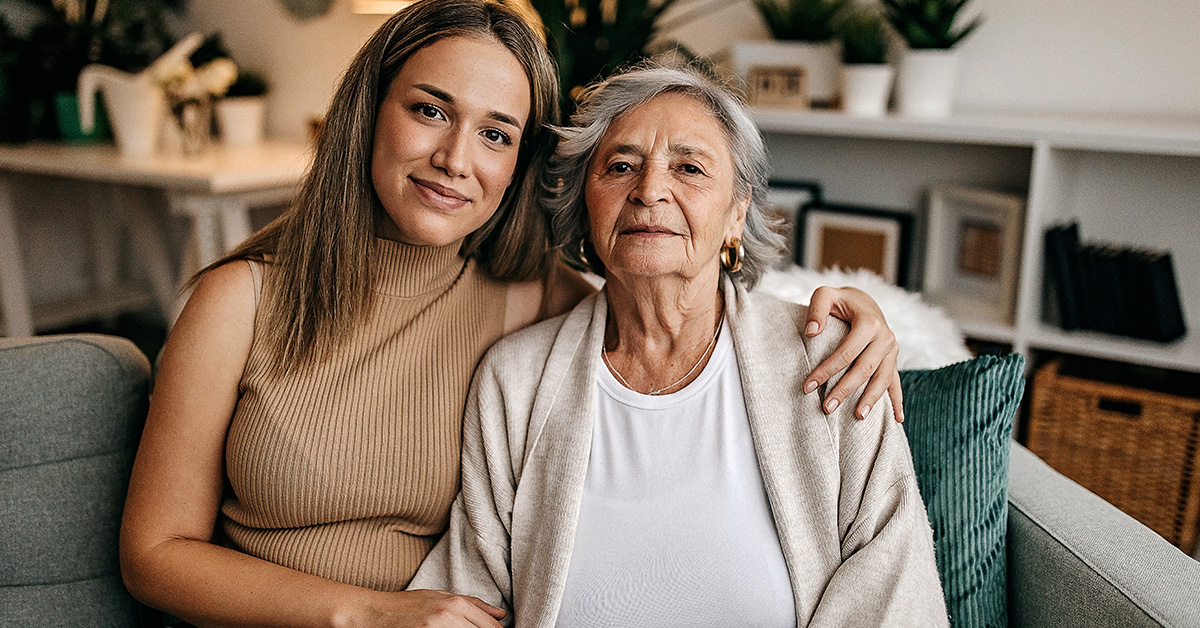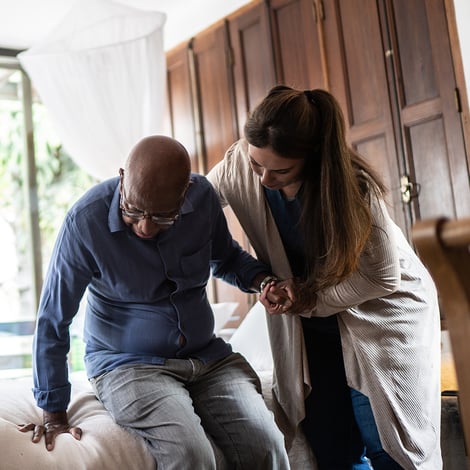What Is Parkinson's Disease?
Lola Danielson Amendt | Apr 19, 2018
Learning that you, a family member, friend, or loved one has Parkinson's disease can be scary. This disease, which affects how nerve signals are sent and received throughout the brain, can interrupt mobility, communication, and day-to-day life at varying levels.
Nearly one million people in the United States, and as many as 10 million worldwide, are living with Parkinson's disease, according to the Parkinson's Disease Foundation. Read on to learn more about Parkinson’s, common symptoms, and life after a Parkinson’s diagnosis.
What Causes Parkinson's Disease?
You might be wondering, how do you get Parkinson's disease?
Parkinson's disease involves a breakdown of the vital nerve cells within the brain (neurons) that transmit messages throughout the rest of the body. The disease impacts the nervous system in the brain, causing dopamine levels to drop. Common symptoms of Parkinson's, such as tremors, are a result of this decline in dopamine.
The disease is progressive, starting with minor symptoms that worsen over time. While each person's symptoms are very different, Parkinson's is characterized by tremors in the hands, arms, and legs, stiff muscles, overall stiffness, and problems with balance and walking.
Who Is at Risk of Parkinson's?
It is most common for symptoms to appear between the ages of 50 and 60, with men being 1.5 times more likely to develop the disease than women. Because Parkinson’s is a chronic and progressive disorder, its symptoms generally continue over time.
Is Parkinson's Passed Genetically?
Genetic cases of Parkinson's only make up about 10–15% of diagnoses today. As a result, Parkinson's is not strictly thought to be a hereditary disease; however, all individuals with a Parkinson's diagnosis experience a loss of dopamine, as well as experience many of the same symptoms that go hand-in-hand with Parkinson's disease.
What Are the Early Warning Signs of Parkinson's Disease?
While Parkinson's presents itself differently in every person, common symptoms include:
- Tremors (e.g., shaking hands and feet)
- Difficulty standing up straight
- Slurred speech
- "Freezing," where your feet seem to be stuck in place and you are unable to move them for a brief period of time
- Constipation
- Muscle weakness or stiffness
- Coordination issues or lack of balance, including an increase in falls
Many people live for years with only mild to moderate symptoms, many of which can be controlled with medication and proper care. As the disease progresses, however, individuals with Parkinson’s usually experience more severe symptoms. These can include greater difficulty walking, speaking, and caring for oneself.
How Is Parkinson's Disease Diagnosed?
To date, there is still no test that can diagnose Parkinson's disease. Instead, a doctor will diagnose someone with Parkinson's after consulting their medical history and their current symptoms. This may also include a neurological and physical examination.
How to Prevent Parkinson's Disease
Because the cause of Parkinson's remains largely unknown, there are no proven methods to slow down or prevent Parkinson's disease and its symptom; however, dopamine and exercise therapy can help alleviate symptoms and provide a quality life for someone with a Parkinson's diagnosis.
How to Care for Someone With Parkinson's Disease
Although Parkinson's is a progressive disease, modern treatments have made it possible for Parkinson's patients to live a long and full life. In addition to medications, things like exercise and proper nutrition are important to minimizing Parkinson's symptoms as the disease progresses. Physical therapy can also help individuals maintain good mobility and balance.
Just as each individual experiences their own set of Parkinson's symptoms, they should receive Parkinson’s care that is tailored specifically for those symptoms. Parkinson's symptoms tend to come and go erratically. This can be frustrating for patients, families, and caregivers as well. There is no standard as to how Parkinson's disease will affect an individual. Each person's situation is different.

Next Steps For Someone Living With Parkinson's
At Walker Methodist, we are committed to helping people with Parkinson's live a full and enjoyable life regardless of their health status or diagnosis. To honor this commitment, we have partnered with the Struthers Parkinson's Center to care for residents with Parkinson's. Working with this nationally-recognized Parkinson's care organization allows us to offer you and your family specialized staff who are trained in caring for individuals living with Parkinson’s.
We understand that Parkinson's patients have their own unique care requirements. That's why we provide care that's flexible enough to accommodate the varying effects of Parkinson's, offering the care an individual needs while allowing the freedom and independence needed to live a full life.



